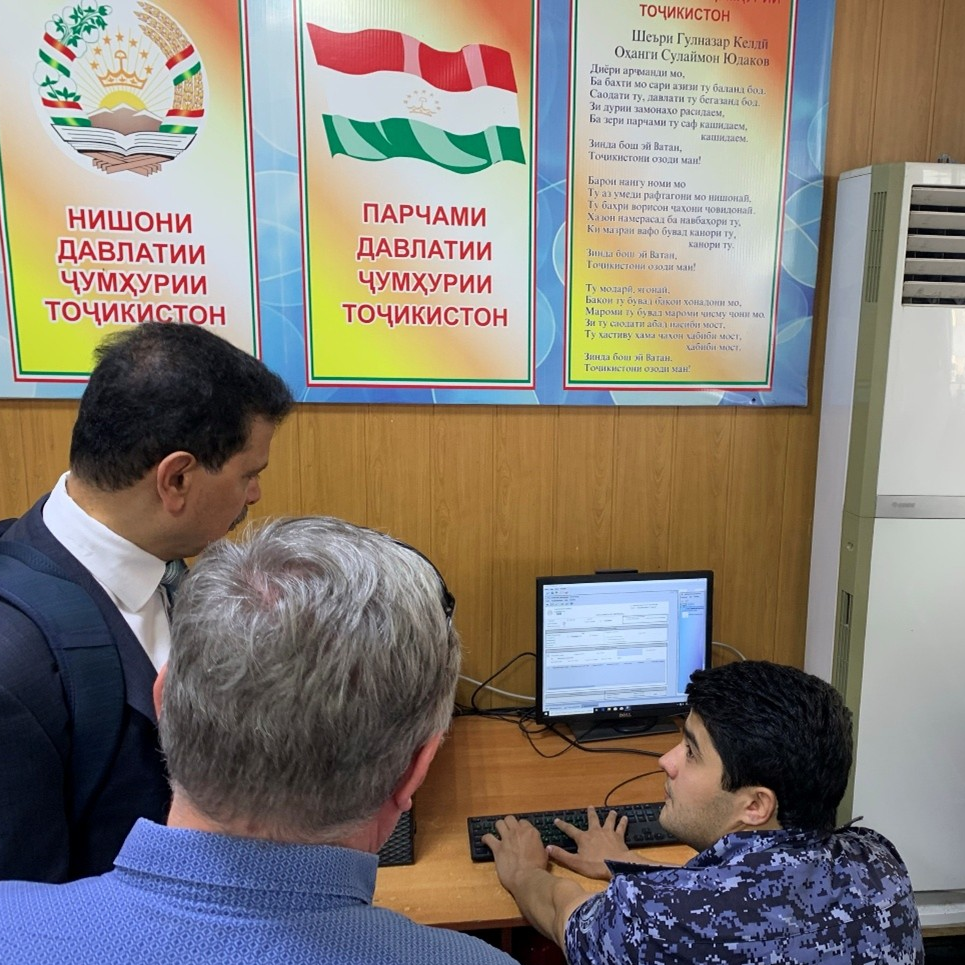
News
Tajikistan Launches Passenger Declaration Module Under ASYCUDAWorld

Dushanbe, May 2025 –
The Customs Service of the Republic of Tajikistan has taken another major step in its national deployment of the ASYCUDAWorld system with the launch of the Passenger Declaration Module. This development builds on the successful rollout of ASYCUDAWorld, which was piloted in 2023 in Dushanbe and Sughd provinces. During that phase, over 100 customs officers and brokers were trained to ensure efficient system use, contributing to an 11 per cent increase in import values in 2023 compared to 2022, and a 14 per cent increase in import transactions from 2023 to 2024. Currently being piloted across customs clearance points nationwide, the system is under continuous evaluation to enhance functionality, reliability, and user convenience. Implemented under the World Bank-funded Central Asia Regional Links (CARs-4) project, this initiative is a core element of Tajikistan’s broader customs reform strategy, focused on strengthening institutional capacity, improving border efficiency, and accelerating the country’s digital transformation agenda.
Since May 2025, the module has been operational at key border customs posts, enabling passengers to submit customs declarations electronically through a centralized and secure system. This digital service eliminates manual paperwork, improves data quality, and aligns Tajikistan’s border control procedures with international best practices for passenger processing.
The module supports real-time validation, centralized data capture, and end-to-end traceability of declarations. Customs officers benefit from faster clearance processes and improved risk management, while travelers experience a smoother, more transparent border-crossing experience. The platform also facilitates cashless payments, advancing the government’s broader digital transformation and financial inclusion goals. Additionally, by reducing administrative inefficiencies and enhancing compliance, it contributes to stronger domestic revenue mobilization, a priority for national development financing and fiscal sustainability.
The integration of advanced IT tools and emerging technologies, including artificial intelligence, is expected to further reinforce border security, improve efficiency, and support evidence-based decision-making. These developments are part of a wider national programme to digitalize public administration, improve logistics connectivity, and strengthen the economic integration of Central Asia.

Dushanbe, May 2025 –
The Customs Service of the Republic of Tajikistan has taken another major step in its national deployment of the ASYCUDAWorld system with the launch of the Passenger Declaration Module. This development builds on the successful rollout of ASYCUDAWorld, which was piloted in 2023 in Dushanbe and Sughd provinces. During that phase, over 100 customs officers and brokers were trained to ensure efficient system use, contributing to an 11 per cent increase in import values in 2023 compared to 2022, and a 14 per cent increase in import transactions from 2023 to 2024. Currently being piloted across customs clearance points nationwide, the system is under continuous evaluation to enhance functionality, reliability, and user convenience. Implemented under the World Bank-funded Central Asia Regional Links (CARs-4) project, this initiative is a core element of Tajikistan’s broader customs reform strategy, focused on strengthening institutional capacity, improving border efficiency, and accelerating the country’s digital transformation agenda.
Since May 2025, the module has been operational at key border customs posts, enabling passengers to submit customs declarations electronically through a centralized and secure system. This digital service eliminates manual paperwork, improves data quality, and aligns Tajikistan’s border control procedures with international best practices for passenger processing.
The module supports real-time validation, centralized data capture, and end-to-end traceability of declarations. Customs officers benefit from faster clearance processes and improved risk management, while travelers experience a smoother, more transparent border-crossing experience. The platform also facilitates cashless payments, advancing the government’s broader digital transformation and financial inclusion goals. Additionally, by reducing administrative inefficiencies and enhancing compliance, it contributes to stronger domestic revenue mobilization, a priority for national development financing and fiscal sustainability.
The integration of advanced IT tools and emerging technologies, including artificial intelligence, is expected to further reinforce border security, improve efficiency, and support evidence-based decision-making. These developments are part of a wider national programme to digitalize public administration, improve logistics connectivity, and strengthen the economic integration of Central Asia.





